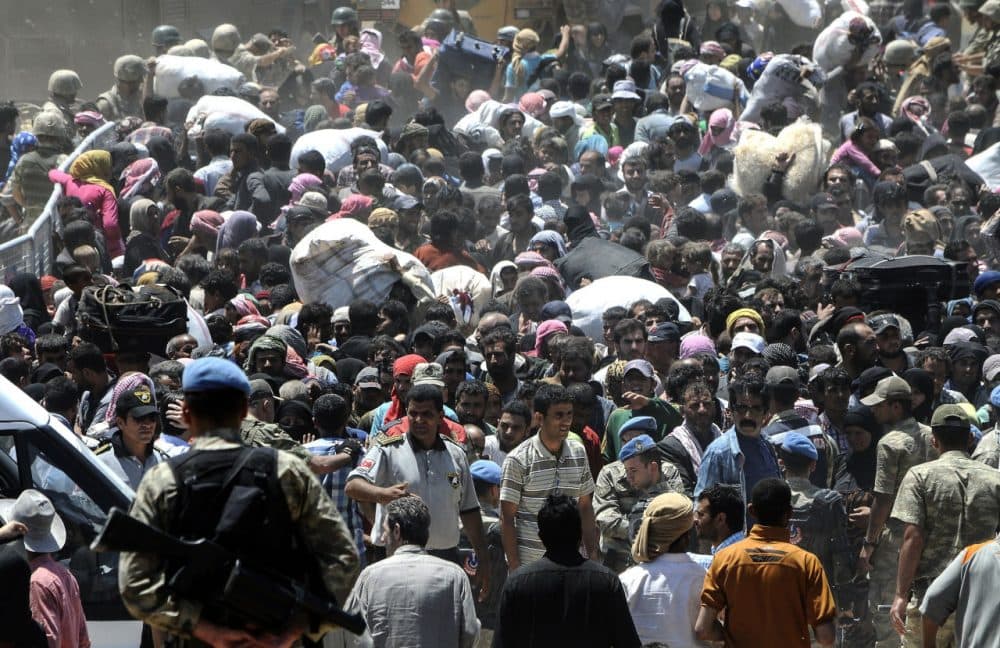Advertisement
Michigan Offers Home To Syrian Refugees
Resume
Michigan is home to one of the country's largest communities of Syrian immigrants. And now it is one of a number of states opening their doors to Syrian refugees fleeing turmoil in their homeland.
Rasha Basha is a Syrian-American working to resettle refugees in the greater Detroit area. She tells Here & Now's Peter O'Dowd about the challenges facing refugees settling in a new country and community.
Interview Highlights: Rasha Basha
On the recent announcement that the U.S. will take in more refugees
"The Syrian nation is 22 million, and more than half — 12 million — are refugees now. And yet the United States has only recently allowed 1,500 Syrian refugees since the beginning of the conflict over four years ago. The U.S. should commit to resettling at least 100,000 Syrian refugees a year."
How have you been able to help Syrian refugees in Michigan since the crisis began?
"I, along with about 40 volunteers — we work together with a resettlement agency to find, to start finding suitable homes in the beginning. In most cases, we rent from Syrian and community investors that had been generous with us, giving us homes at discounted rent. We just teamed up with a Syrian organization called [The] Foundation for Justice and Development to cosign lease on behalf of the family."
"They're people like you and me -- hardworking men, women and children looking to live in peace and not having to worry about bombs dropping over their heads."
On one of the families she's helped
"A family — a young couple I resettled a week ago — was a very touching story. He's been in Jordan for three years. Back in Syria, he owned a small restaurant, or you know — stand, where he sold shawarma sandwiches. He had fled to Jordan to escape the bombing. He was caught working — and this is a crime in Jordan. He was forced to get into an army car and give them directions to his house where his 21-year-old [wife], and 4- and 2-year-old daughters lived there. They were forced to a refugee camp."
How are they doing now?
"Very, very happy. Very pleasant. Actually, he just started working. One of the things we do with Syrian refugees is help them with finding jobs. And he's been here for only 10 days and already started work yesterday in a shawarma place and he is very, very happy. His wife is enrolled in ESL classes now. We help her with babysitting and transporting her from — him and her — to work and school."
On whether the refugees will stay in the U.S. or return to Syria
"I think they will stay. The tragedy in Syria, it's going to take generations to be fixed. It's not going to take a year or two or 10 years. And I think these people are here to stay, to start a new life."
On concerns over terrorism
"If you meet these families, you would just see the innocence, and they're people like you and me — hardworking men, women and children looking to live in peace and not having to worry about bombs dropping over their heads. Actually, according to the director of one of the resettlement agencies I work with, she said ‘You know, these people, the Syrian refugees, are the most eager out of every community they resettled — to get jobs as soon as they get here and start peaceful life.' That's why we encourage the U.S. to commit to resettling at least 100,000 Syrian refugees a year."
Guest
- Rasha Basha, a Syrian-American volunteer working to help resettle Syrian refugees in the greater Detroit area.
This segment aired on September 22, 2015.